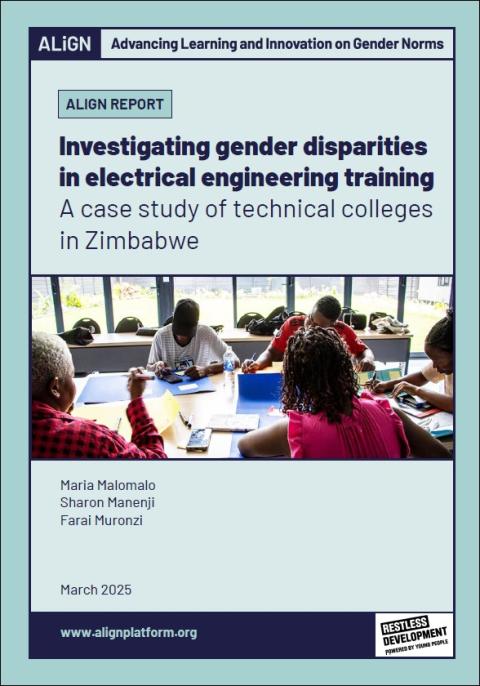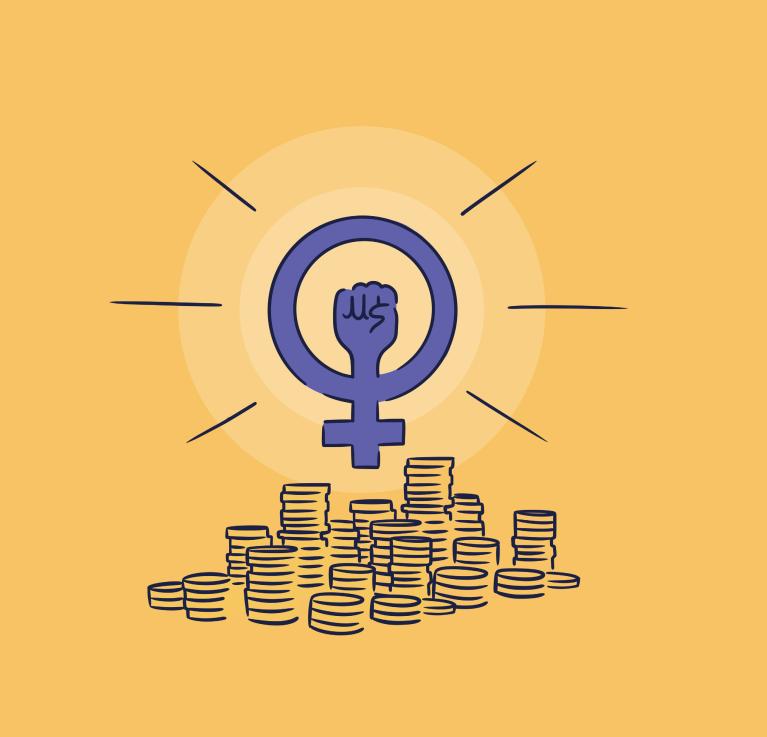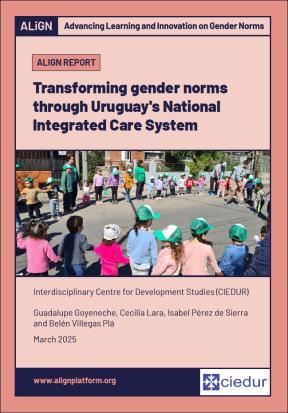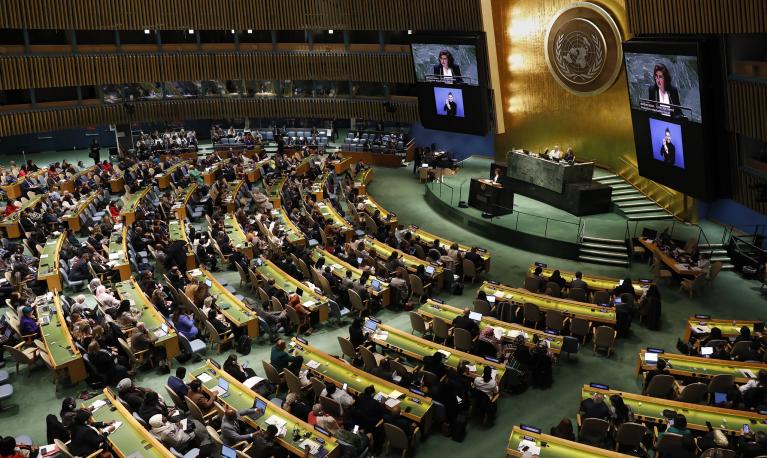- Report
- 20 March 2025
Investigating gender disparities in electrical engineering training: a case study of technical colleges in Zimbabwe
- Author: Maria Malomalo, Sharon Manenji, Farai Muronzi
- Published by: ALIGN, Restless Development

Women worldwide are underrepresented in emerging sectors and roles linked to the transition to low-carbon economies, especially in high-quality jobs that demand technical expertise and transversal skills.
Zimbabwe is embracing renewable energy as part of its commitment to a just transition away from fossil fuels, aiming to mitigate climate change while addressing social and economic inequalities.
This research examines how young women from technical colleges in Zimbabwe experience training in the electrical engineering course compared to their male counterparts. Five tertiary institutions were sampled in Bulawayo, Harare, Manicaland, and Midlands provinces, using a mixed-methods approach consisting of focus group discussions, key informant interviews and a quantitative survey.
The research highlights barriers faced by young women as they attempt to pursue and excel in this male-dominated field. It identifies the institutional and societal factors that contribute to gender disparities and provides actionable recommendations to foster gender inclusivity.
Key findings
- Female students encounter societal prejudice, rooted in gender norms, that labels engineering a ‘man’s field’.
- Sexual harassment in the workplace is a serious issue that has a disproportionate impact on women.
- Practical training for young women and men is inadequate, but the challenges for women are exacerbated by gender bias and a lack of mentorship.
- Young women studying electrical engineering are expected to balance rigorous studying with additional responsibilities including household chores and caregiving.
- Young women struggle to secure jobs/internship placements, in part due to gender discrimination from employers who prioritise men believing them to be more productive.
Key recommendations
- Offer mentorship programmes that pair female students with successful female electrical engineers.
- Increase recruitment efforts that target women specifically.
- Organise workshops or seminars to address gender bias and stereotypes.
- Create scholarships or financial aid opportunities for women.
- Reintroduce the Zimbabwe Manpower Development Fund (ZIMDEF) to assist students.
- Countries / Regions:
- Zimbabwe
Related resources
2 November 2020

Report
26 March 2025

Report
20 March 2025

Blog
19 December 2024

Blog
3 April 2024
